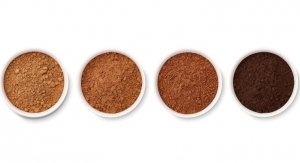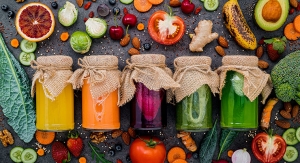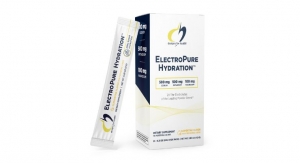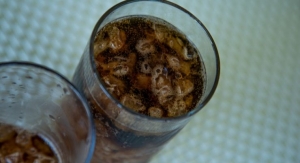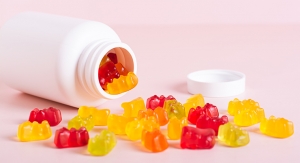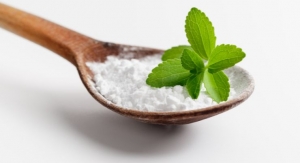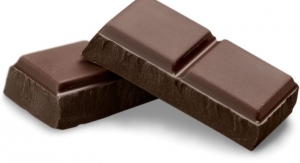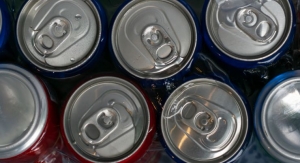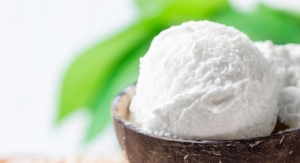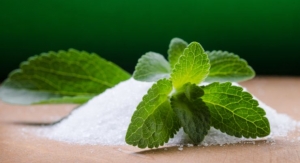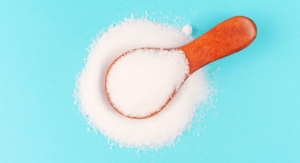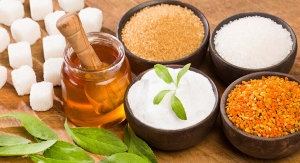Lisa Schofield01.06.10
The most pleasant taste that can literally beat back the blues is sweetness—which is why it is craved by nearly everyone who walks the earth. Desires for foods and beverages with a touch of sweet continue to drive thousands of new product launches each year for every type of retail channel.
There has been a dark side to sweets for years: “too much will rot your teeth,” “you’ll get diabetes by eating too much sugar”—and the biggest boogie man, “I can’t have sweets because I’ll get fat and I’m trying to lose weight.”
Synthetic sweeteners such as saccharin, cyclamate and aspartame may have saved on the calories and perhaps not have assaulted the pancreas, but they have been tainted by press warnings of potential cancer from long-term consumption. Although the makers of Equal (featuring aspartame) and Sweet’N Low (featuring saccharin) assuage consumers by pointing out that these chemicals are indeed safe, the bad reputation has kicked open the door to provide naturally derived, benign sweeteners for tabletop and baking use, as well as for inclusion in a dizzying array of food and beverage products.
Natural: Not Always the Healthiest
The category of sweeteners epitomizes the statement that “natural is not always the healthiest or best.” Cane sugar and its unrefined sibling, turbinado sugar, are of course, natural. Turbinado sugar enjoyed a spike in popularity when brand marketer Sugar in the Raw launched it; it’s more appealing because it has fewer calories. But it remains a “no-no” for those on restricted diets.
Another naturally derived sweetening agent has created a powerful consumer education campaign, trying to reverse a very negative image. Commercials have been airing recently to get us to think differently about high-fructose corn syrup (HFCS)—emphasizing its safety in moderation and that it’s natural. Knowing the super-buying-powers of Moms, one spot drives it home by featuring two young mothers discussing HFCS, with one firmly convincing the other that HFCS is suitable for the whole family.
The consumer-oriented website, www.sweetsurprise.com, alleviates fears about consumption of HFCS impacting weight and blood sugar status. High-fructose corn syrup contains no artificial or synthetic ingredients or color additives and meets FDA requirements for use of the term “natural.” It shares a similar taste profile to sugar. But while HFCS has received a pretty makeover, it still also remains prohibitive for individuals with certain dietary restrictions.
Polyols: A Next Step Up
More recently, the sugar alcohol family of naturally derived plant sugars (polyols—sorbitol, erythritol and xylitol) has forged inroads in natural sweeteners. They have virtually no calories and are not known to affect blood sugar. However, some polyols such as sorbitol and erythritol can cause GI disturbances and bloating in people sensitive to these compounds, or who consume a lot at once.
Xylitol does have a health benefit and its natural profile makes it a harmonious addition to any mint-flavored beverage or candy. Ron Udell, president and CEO, Kenko International Inc., Los Angeles, CA, commented, “Historically, sweeteners have evolved in cycles of adding new non-nutritive and non-caloric sweeteners to the existing list. With the advent of xylitol, you have a non-caloric sweetener that has a health benefit in that it prevents dental caries. The flavor profile goes very well with flavors that have a coolness to the mouth-feel as opposed to a sweet or fruity sensation.”
According to www.xylitol.org, xylitol is a white crystalline substance that looks and tastes like sugar. The site explains, “On food labels, xylitol is classified broadly as a carbohydrate and more narrowly as a polyol. Because xylitol is only slowly absorbed and partially utilized, a reduced calorie claim is allowed: 2.4 calories per gram or 40% less than other carbohydrates. Xylitol is approved as a food additive in unlimited quantity for foods with special dietary purposes.”
Xylitol is dentally advantageous. Research has shown that it may reduce tooth decay rates both in high-risk and low-risk groups (based on carie prevalence and other factors). Sugar-free chewing gums and candies containing xylitol as the principal sweetener are officially endorsed by six national dental associations.
According to market research firm Mintel International, Chicago, IL, xylitol and erythritol sales reached about $150 million for the period of 52 weeks ending July 11-12, 2009, with FDMx and natural supermarkets accounting for 89% of sales. Food and beverage products contribute to the majority of sales, as xylitol and erythritol are mostly unavailable as stand-alone tabletop sweeteners in FDMx channels. Due to an appealing “sugar-like” flavor profile, along with consumer familiarity, xylitol and erythritol should continue to do well.
Turning Over the New Leaf
Perhaps nobody could better attest to knowing sheer frustration as suppliers and brand marketers of stevia prior to December 2008. The naturals industry knew that the leaf of sweetness was a viable contender as a sugar alternative, but the strict prohibition of marketing it as such, instead of a “dietary supplement” left only a tiny slice of the consumer pie to purchase and use it to sweeten their palates.
Consumers were left to try to figure out how this “dietary supplement” conferred health value in the manner that others in the category did.
“In December 2008, a market-changing event took place with the FDA’s letter of no objection for stevia-derived, Reb-A,” commented Jason Hecker, director of marketing, PureCircle USA Inc., Oak Brook, IL. “With this legislation, the U.S. market was opened to the first commercially viable, natural, zero-calorie sweetener that tastes like sugar. The product of more than 20 years of research, Reb-A is one of the sweetest and best-tasting steviol glycosides found in the stevia leaf. Reb-A’s entry into the market set off a flurry of new product development as food and beverage manufacturers began to explore how they could use this new generation sweetener.”
Likewise optimistic is Greg Horn, senior director, WILD Flavors, Inc, Erlanger, KY, who observed, “The natural sweetener market has been revolutionized with the natural, no calorie sweeteners like stevia and luo han guo achieving GRAS (Generally Recognized as Safe) status. This moves these ingredients from the niche markets of dietary supplements to the mainstream food and beverage market.”
Paul Paslaski, vice president of sales and marketing, BioVittoria, Libertyville, IL, said, “Thanks to the FDA allowance, there are new players entering the arena. Although natural sweeteners have been around seemingly forever, the difference is that the desire has never been stronger for healthier, calorie-reduced natural sweeteners.” BioVittoria USA will soon announce the official launch of a monkfruit concentrate for foods, beverages and powdered supplements.
“The sugar market overall is a $50 billion market, which is a vast space,” Mr. Paslaski added. “Our equity and difference in the market is that our product is derived from a fruit, and it is also suitable for blending with Reb-A to deliver a sought-after taste profile.
According to Mintel International, in U.S. FDMx and natural supermarkets, stevia sales approached $100 million for the year ending July 2009. This figure includes sales of tabletop sweeteners made with stevia and rebaudioside-A (Reb-A) (e.g., Truvia and PureVia), along with sales of foods, beverages and other products that contain these sweeteners.
The market research agency predicts that the $500 million global market for stevia as an ingredient will rapidly increase in size in the next few years, now that FDA has approved Reb-A for use in foods and beverages in the U.S. PureCircle has estimated that the global stevia ingredient market could reach $10 billion in just a few years. Mintel forecasts that the U.S. ingredient market for stevia conservatively could account for 10% of this market (or $1 billion) by the end of 2011. When factoring in retail sales of stevia and Reb-A in tabletop sweeteners and in foods, beverages and other products that contain stevia, Mintel believes that these sales could exceed $2 billion by the end of 2011.
Meanwhile, questions about stevia and today’s sweeteners were posed to nearly 1500 Moms aged 25 to 49 across the U.S. in a study sponsored by PureCircle in concert with LaunchForce. According to the study, more than one out of every three Moms is already aware of stevia. “Awareness is one thing, but having a positive impression of a sweetener is far more important,” explained Mr. Hecker.
This seems to be in line with market research performed in the previous year. According to the International Food Information Council (IFIC), Food and Health Survey for August 2008, more Americans report they are trying to consume less aspartame (43%), saccharin (45%) and sucralose (44%) in 2008 compared to 2007.
Almost simultaneously, a 2008 Gallup Study of Sweetener Preferences asserted, “strong interest in an all ‘natural’ no calorie sweetener coupled with favorable perceptions of stevia among the small but growing consumer base familiar with this sweetener, suggests the potential for significant change ahead, as stevia moves toward FDA approval.”
And now that this approval has occurred, the Reb-A market has revved, with market leaders helping to shape a positive and well-informed perception. Cecilia McCollum, executive vice president of Blue California, Rancho Santa Margarita, CA, emphasized, “When we discuss stevia as a natural sweetener, we must be careful to make the distinction that not all stevia products meet the requirements to be used as a food additive. Stevia products normally have a very strong bitter aftertaste that even with expert masking it is not easy to disguise. By contrast, Rebaudioside-A (Reb-A) at 99% purity, as produced by Blue California and trademarked as Good&Sweet, not only meets the strictest requirements—Joint FAO/WHO Expert Committee on Food Additives (JECFA), European Food Safety Authority (EFSA) and FDA’s—as a food ingredient but also offers the best taste that is an important consumer requirement for food products.”
Ms. McCollum anticipated heavy movement in the category as brand marketers scramble to include Reb-A into their foods and beverages, due to increasing consumer demand. As such, she cautioned to do your due diligence and only work with reputable suppliers that provide full audit reports from independent agencies for clear and present validation, plus proof of pesticide and solvent residue testing for purity and safety. “It is very important that our industry realizes it’s not enough to receive a Certificate of Analysis and a good price, it’s important to verify the quality of the product and follow strict quality control procedures at all times.”
Jim May, founder of Wisdom Natural Brands, Gilbert, AZ, who brought stevia into the U.S. from Paraguay in 1982, also understands the importance of product quality. On his company website, Mr. May passionately details his mission to extend the use of stevia to help safely address childhood obesity, which may be a tremendous market opportunity. “When I invested my life savings in the development of stevia products in 1982, childhood obesity was not the epidemic it is today,” he stated. “SweetLeaf Sweetener provides a solution in the prevention of obesity; it contains zero carbs, zero calories, zero glycemic index and is 100% natural.”
Applying Versatility
Reb-A’s versatility in formulations is another benefit that should help catapult product launch numbers and resulting sales. According to Mr. Hecker, Pure Circle’s Reb-A can already be found in products in the market. “Zero-calorie SoBe Lifewater is a good example of a non-caloric application that is very successful,” he noted. “The zero-calorie products are proving to be best-sellers for the line. Another successful launch is Tropicana’s Trop50 reduced-calorie, orange juice product. The benefit of Reb-A is that it is applicable to a wide variety of products, not just zero-calorie. There is application work going on across almost all food and beverage categories. Since Reb-A was just approved in December of last year, application work is still just beginning. There is much work to be done to bring new products to market.”
WILD Flavors, Inc. and its partner, Sunwin, offer a wide range of stevia extracts that are GRAS for use in food and beverages. According to Mr. Horn, WILD has developed a broad range of stevia-sweetened products. The supplier’s core competency focuses on taste modification and it has created more than 30 different all-natural taste modifiers for various stevia-sweetened applications. These taste modifiers give stevia a more familiar sugar-like taste profile by adding upfront sweetness, decreasing the bitterness and cutting the lingering sweetness.
“Our taste modification technology and strict specifications for stevia have given us the tools to develop great-tasting products, such as reduced-sugar breads, sauces and soups. We have also commercialized enhanced waters and low-calorie sports drinks. Other great-tasting products sweetened with stevia include yogurt, chewing gum and even lower calorie alcohol drinks.”
Blue California’s Good&Sweet Reb-A 99% is said by Ms. McCollum to be the highest purity Reb-A in the market, “ and because of the high purity of our product we work with many flavor companies that only use Good&Sweet for their prototypes or formulations,” she commented. Good&Sweet is suited for a variety of food and beverage applications, such as general diet products, sports nutrition, functional foods, sauces, desserts, confectioneries, yogurts, fruit juices, fruit products, chewing gum, candy, bakery and a variety of cereals and snacks. “We are collaborating with several flavor companies who are developing different flavor agents that can further support food and beverage companies in the development of great-tasting finished products and deliver the great taste the consumer expects of this natural sweetener.”
According to the company’s Mr. Udell, Kenko provides stevia powdered extract to the marketplace. “The major beverage brands are formulating with stevia, but I do not see much on the market yet,” he noted. “I think consumer demand will drive the launch of some beverages, even soft drinks, containing stevia and Reb-A, which already now exist. The ingredient may be featured more heavily in the healthy beverage category than in mainstream carbonated beverages. Our customers are primarily seeking a totally natural flavor ingredient with a flavor profile that is not subject to heat and other stability issues that will give it a variety of uses.”
Because of Reb-A’s ability to be used as a singular sweetening agent, as well as in a seamless blend, the market for “diabetic friendly” convenience foods such as Snackwell’s, diet plan meals such as Nutrisystem, and of course, children’s foods and cereals, represent a vast new frontier.
The potential is enormous and even some physicians are firmly behind these new natural sweeteners. Rodney Voisine, MD, RPh, partner, Center for Weight Management & Wellness, LLC, Portland, ME, said his patients want a sweetener that is zero calorie, and looks, tastes and bakes like sugar. Stevia fits the bill. “I frequently purchase individual packets of stevia and give them to patients to try. The addition of erythritol to stevia has helped minimize the slight bitter taste from raw stevia. Product sampling along with recipes is a great way to encourage our patients to decrease their dependence on table sugar,” he said.
With Reb-A ready for mass consumption, it appears all consumers can have their cake and eat it too—guilt free and with our doctors’ nod of approval.
Consumers aged 35-54: With roughly one fourth of all respondents indicating an interest in potentially trying stevia products, whether they’ve heard of it or not, 35- to 54-year-olds skew slightly higher (29%). This age group is also the most likely to have heard of stevia with an interest in trial.
Affluent consumers: A gap of 13 percentage points separates the least affluent and most affluent households, in terms of their awareness and interest in stevia trial. Fully 47% of respondents whose household incomes range from $100K to $149K indicate curiosity or current/prior stevia trial.
Well-educated consumers: 34% of respondents who’ve completed some graduate school are interested in trying stevia, vs. just 20% of respondents who’ve completed some or all of high school. In addition, 21% of respondents who’ve completed graduate school have tried stevia and plan to continue to—more than double the percentage of respondents who’ve completed some or all of high school. Better-educated respondents also are the most accepting of stevia as a safe alternative to artificial sweeteners.
Female consumers: Women are more finicky than men in terms of the importance they place on sweeteners. Taste,
along with caloric value, cooking/baking versatility and consistency are all more important to women than men. In addition, nearly one third of all females (31%) indicate they bring sweeteners to places outside the home, where as just one fifth (22%) of males indicate they do this. In all likelihood, this variance is due to the fact that women generally are more calorie-conscious and therefore motivated to more closely monitor not only the type, but also the amount of sweeteners they consume throughout the day. This suggests loyalty to brands as well.
Source: Mintel International
There has been a dark side to sweets for years: “too much will rot your teeth,” “you’ll get diabetes by eating too much sugar”—and the biggest boogie man, “I can’t have sweets because I’ll get fat and I’m trying to lose weight.”
Synthetic sweeteners such as saccharin, cyclamate and aspartame may have saved on the calories and perhaps not have assaulted the pancreas, but they have been tainted by press warnings of potential cancer from long-term consumption. Although the makers of Equal (featuring aspartame) and Sweet’N Low (featuring saccharin) assuage consumers by pointing out that these chemicals are indeed safe, the bad reputation has kicked open the door to provide naturally derived, benign sweeteners for tabletop and baking use, as well as for inclusion in a dizzying array of food and beverage products.
Natural: Not Always the Healthiest
The category of sweeteners epitomizes the statement that “natural is not always the healthiest or best.” Cane sugar and its unrefined sibling, turbinado sugar, are of course, natural. Turbinado sugar enjoyed a spike in popularity when brand marketer Sugar in the Raw launched it; it’s more appealing because it has fewer calories. But it remains a “no-no” for those on restricted diets.
Another naturally derived sweetening agent has created a powerful consumer education campaign, trying to reverse a very negative image. Commercials have been airing recently to get us to think differently about high-fructose corn syrup (HFCS)—emphasizing its safety in moderation and that it’s natural. Knowing the super-buying-powers of Moms, one spot drives it home by featuring two young mothers discussing HFCS, with one firmly convincing the other that HFCS is suitable for the whole family.
The consumer-oriented website, www.sweetsurprise.com, alleviates fears about consumption of HFCS impacting weight and blood sugar status. High-fructose corn syrup contains no artificial or synthetic ingredients or color additives and meets FDA requirements for use of the term “natural.” It shares a similar taste profile to sugar. But while HFCS has received a pretty makeover, it still also remains prohibitive for individuals with certain dietary restrictions.
Polyols: A Next Step Up
More recently, the sugar alcohol family of naturally derived plant sugars (polyols—sorbitol, erythritol and xylitol) has forged inroads in natural sweeteners. They have virtually no calories and are not known to affect blood sugar. However, some polyols such as sorbitol and erythritol can cause GI disturbances and bloating in people sensitive to these compounds, or who consume a lot at once.
Xylitol does have a health benefit and its natural profile makes it a harmonious addition to any mint-flavored beverage or candy. Ron Udell, president and CEO, Kenko International Inc., Los Angeles, CA, commented, “Historically, sweeteners have evolved in cycles of adding new non-nutritive and non-caloric sweeteners to the existing list. With the advent of xylitol, you have a non-caloric sweetener that has a health benefit in that it prevents dental caries. The flavor profile goes very well with flavors that have a coolness to the mouth-feel as opposed to a sweet or fruity sensation.”
According to www.xylitol.org, xylitol is a white crystalline substance that looks and tastes like sugar. The site explains, “On food labels, xylitol is classified broadly as a carbohydrate and more narrowly as a polyol. Because xylitol is only slowly absorbed and partially utilized, a reduced calorie claim is allowed: 2.4 calories per gram or 40% less than other carbohydrates. Xylitol is approved as a food additive in unlimited quantity for foods with special dietary purposes.”
Xylitol is dentally advantageous. Research has shown that it may reduce tooth decay rates both in high-risk and low-risk groups (based on carie prevalence and other factors). Sugar-free chewing gums and candies containing xylitol as the principal sweetener are officially endorsed by six national dental associations.
According to market research firm Mintel International, Chicago, IL, xylitol and erythritol sales reached about $150 million for the period of 52 weeks ending July 11-12, 2009, with FDMx and natural supermarkets accounting for 89% of sales. Food and beverage products contribute to the majority of sales, as xylitol and erythritol are mostly unavailable as stand-alone tabletop sweeteners in FDMx channels. Due to an appealing “sugar-like” flavor profile, along with consumer familiarity, xylitol and erythritol should continue to do well.
Turning Over the New Leaf
Perhaps nobody could better attest to knowing sheer frustration as suppliers and brand marketers of stevia prior to December 2008. The naturals industry knew that the leaf of sweetness was a viable contender as a sugar alternative, but the strict prohibition of marketing it as such, instead of a “dietary supplement” left only a tiny slice of the consumer pie to purchase and use it to sweeten their palates.
Consumers were left to try to figure out how this “dietary supplement” conferred health value in the manner that others in the category did.
“In December 2008, a market-changing event took place with the FDA’s letter of no objection for stevia-derived, Reb-A,” commented Jason Hecker, director of marketing, PureCircle USA Inc., Oak Brook, IL. “With this legislation, the U.S. market was opened to the first commercially viable, natural, zero-calorie sweetener that tastes like sugar. The product of more than 20 years of research, Reb-A is one of the sweetest and best-tasting steviol glycosides found in the stevia leaf. Reb-A’s entry into the market set off a flurry of new product development as food and beverage manufacturers began to explore how they could use this new generation sweetener.”
Likewise optimistic is Greg Horn, senior director, WILD Flavors, Inc, Erlanger, KY, who observed, “The natural sweetener market has been revolutionized with the natural, no calorie sweeteners like stevia and luo han guo achieving GRAS (Generally Recognized as Safe) status. This moves these ingredients from the niche markets of dietary supplements to the mainstream food and beverage market.”
Paul Paslaski, vice president of sales and marketing, BioVittoria, Libertyville, IL, said, “Thanks to the FDA allowance, there are new players entering the arena. Although natural sweeteners have been around seemingly forever, the difference is that the desire has never been stronger for healthier, calorie-reduced natural sweeteners.” BioVittoria USA will soon announce the official launch of a monkfruit concentrate for foods, beverages and powdered supplements.
“The sugar market overall is a $50 billion market, which is a vast space,” Mr. Paslaski added. “Our equity and difference in the market is that our product is derived from a fruit, and it is also suitable for blending with Reb-A to deliver a sought-after taste profile.
According to Mintel International, in U.S. FDMx and natural supermarkets, stevia sales approached $100 million for the year ending July 2009. This figure includes sales of tabletop sweeteners made with stevia and rebaudioside-A (Reb-A) (e.g., Truvia and PureVia), along with sales of foods, beverages and other products that contain these sweeteners.
The market research agency predicts that the $500 million global market for stevia as an ingredient will rapidly increase in size in the next few years, now that FDA has approved Reb-A for use in foods and beverages in the U.S. PureCircle has estimated that the global stevia ingredient market could reach $10 billion in just a few years. Mintel forecasts that the U.S. ingredient market for stevia conservatively could account for 10% of this market (or $1 billion) by the end of 2011. When factoring in retail sales of stevia and Reb-A in tabletop sweeteners and in foods, beverages and other products that contain stevia, Mintel believes that these sales could exceed $2 billion by the end of 2011.
Meanwhile, questions about stevia and today’s sweeteners were posed to nearly 1500 Moms aged 25 to 49 across the U.S. in a study sponsored by PureCircle in concert with LaunchForce. According to the study, more than one out of every three Moms is already aware of stevia. “Awareness is one thing, but having a positive impression of a sweetener is far more important,” explained Mr. Hecker.
This seems to be in line with market research performed in the previous year. According to the International Food Information Council (IFIC), Food and Health Survey for August 2008, more Americans report they are trying to consume less aspartame (43%), saccharin (45%) and sucralose (44%) in 2008 compared to 2007.
Almost simultaneously, a 2008 Gallup Study of Sweetener Preferences asserted, “strong interest in an all ‘natural’ no calorie sweetener coupled with favorable perceptions of stevia among the small but growing consumer base familiar with this sweetener, suggests the potential for significant change ahead, as stevia moves toward FDA approval.”
And now that this approval has occurred, the Reb-A market has revved, with market leaders helping to shape a positive and well-informed perception. Cecilia McCollum, executive vice president of Blue California, Rancho Santa Margarita, CA, emphasized, “When we discuss stevia as a natural sweetener, we must be careful to make the distinction that not all stevia products meet the requirements to be used as a food additive. Stevia products normally have a very strong bitter aftertaste that even with expert masking it is not easy to disguise. By contrast, Rebaudioside-A (Reb-A) at 99% purity, as produced by Blue California and trademarked as Good&Sweet, not only meets the strictest requirements—Joint FAO/WHO Expert Committee on Food Additives (JECFA), European Food Safety Authority (EFSA) and FDA’s—as a food ingredient but also offers the best taste that is an important consumer requirement for food products.”
Ms. McCollum anticipated heavy movement in the category as brand marketers scramble to include Reb-A into their foods and beverages, due to increasing consumer demand. As such, she cautioned to do your due diligence and only work with reputable suppliers that provide full audit reports from independent agencies for clear and present validation, plus proof of pesticide and solvent residue testing for purity and safety. “It is very important that our industry realizes it’s not enough to receive a Certificate of Analysis and a good price, it’s important to verify the quality of the product and follow strict quality control procedures at all times.”
Jim May, founder of Wisdom Natural Brands, Gilbert, AZ, who brought stevia into the U.S. from Paraguay in 1982, also understands the importance of product quality. On his company website, Mr. May passionately details his mission to extend the use of stevia to help safely address childhood obesity, which may be a tremendous market opportunity. “When I invested my life savings in the development of stevia products in 1982, childhood obesity was not the epidemic it is today,” he stated. “SweetLeaf Sweetener provides a solution in the prevention of obesity; it contains zero carbs, zero calories, zero glycemic index and is 100% natural.”
Applying Versatility
Reb-A’s versatility in formulations is another benefit that should help catapult product launch numbers and resulting sales. According to Mr. Hecker, Pure Circle’s Reb-A can already be found in products in the market. “Zero-calorie SoBe Lifewater is a good example of a non-caloric application that is very successful,” he noted. “The zero-calorie products are proving to be best-sellers for the line. Another successful launch is Tropicana’s Trop50 reduced-calorie, orange juice product. The benefit of Reb-A is that it is applicable to a wide variety of products, not just zero-calorie. There is application work going on across almost all food and beverage categories. Since Reb-A was just approved in December of last year, application work is still just beginning. There is much work to be done to bring new products to market.”
WILD Flavors, Inc. and its partner, Sunwin, offer a wide range of stevia extracts that are GRAS for use in food and beverages. According to Mr. Horn, WILD has developed a broad range of stevia-sweetened products. The supplier’s core competency focuses on taste modification and it has created more than 30 different all-natural taste modifiers for various stevia-sweetened applications. These taste modifiers give stevia a more familiar sugar-like taste profile by adding upfront sweetness, decreasing the bitterness and cutting the lingering sweetness.
“Our taste modification technology and strict specifications for stevia have given us the tools to develop great-tasting products, such as reduced-sugar breads, sauces and soups. We have also commercialized enhanced waters and low-calorie sports drinks. Other great-tasting products sweetened with stevia include yogurt, chewing gum and even lower calorie alcohol drinks.”
Blue California’s Good&Sweet Reb-A 99% is said by Ms. McCollum to be the highest purity Reb-A in the market, “ and because of the high purity of our product we work with many flavor companies that only use Good&Sweet for their prototypes or formulations,” she commented. Good&Sweet is suited for a variety of food and beverage applications, such as general diet products, sports nutrition, functional foods, sauces, desserts, confectioneries, yogurts, fruit juices, fruit products, chewing gum, candy, bakery and a variety of cereals and snacks. “We are collaborating with several flavor companies who are developing different flavor agents that can further support food and beverage companies in the development of great-tasting finished products and deliver the great taste the consumer expects of this natural sweetener.”
According to the company’s Mr. Udell, Kenko provides stevia powdered extract to the marketplace. “The major beverage brands are formulating with stevia, but I do not see much on the market yet,” he noted. “I think consumer demand will drive the launch of some beverages, even soft drinks, containing stevia and Reb-A, which already now exist. The ingredient may be featured more heavily in the healthy beverage category than in mainstream carbonated beverages. Our customers are primarily seeking a totally natural flavor ingredient with a flavor profile that is not subject to heat and other stability issues that will give it a variety of uses.”
Because of Reb-A’s ability to be used as a singular sweetening agent, as well as in a seamless blend, the market for “diabetic friendly” convenience foods such as Snackwell’s, diet plan meals such as Nutrisystem, and of course, children’s foods and cereals, represent a vast new frontier.
The potential is enormous and even some physicians are firmly behind these new natural sweeteners. Rodney Voisine, MD, RPh, partner, Center for Weight Management & Wellness, LLC, Portland, ME, said his patients want a sweetener that is zero calorie, and looks, tastes and bakes like sugar. Stevia fits the bill. “I frequently purchase individual packets of stevia and give them to patients to try. The addition of erythritol to stevia has helped minimize the slight bitter taste from raw stevia. Product sampling along with recipes is a great way to encourage our patients to decrease their dependence on table sugar,” he said.
With Reb-A ready for mass consumption, it appears all consumers can have their cake and eat it too—guilt free and with our doctors’ nod of approval.
Consumers aged 35-54: With roughly one fourth of all respondents indicating an interest in potentially trying stevia products, whether they’ve heard of it or not, 35- to 54-year-olds skew slightly higher (29%). This age group is also the most likely to have heard of stevia with an interest in trial.
Affluent consumers: A gap of 13 percentage points separates the least affluent and most affluent households, in terms of their awareness and interest in stevia trial. Fully 47% of respondents whose household incomes range from $100K to $149K indicate curiosity or current/prior stevia trial.
Well-educated consumers: 34% of respondents who’ve completed some graduate school are interested in trying stevia, vs. just 20% of respondents who’ve completed some or all of high school. In addition, 21% of respondents who’ve completed graduate school have tried stevia and plan to continue to—more than double the percentage of respondents who’ve completed some or all of high school. Better-educated respondents also are the most accepting of stevia as a safe alternative to artificial sweeteners.
Female consumers: Women are more finicky than men in terms of the importance they place on sweeteners. Taste,
along with caloric value, cooking/baking versatility and consistency are all more important to women than men. In addition, nearly one third of all females (31%) indicate they bring sweeteners to places outside the home, where as just one fifth (22%) of males indicate they do this. In all likelihood, this variance is due to the fact that women generally are more calorie-conscious and therefore motivated to more closely monitor not only the type, but also the amount of sweeteners they consume throughout the day. This suggests loyalty to brands as well.
Source: Mintel International

